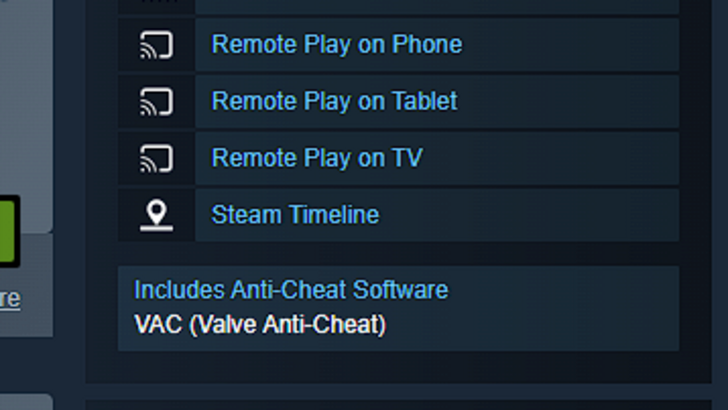
Steam now requires all developers to disclose whether their games utilize the controversial kernel-mode anti-cheat system. This article explores Steam's platform changes and the ongoing debate surrounding kernel-mode anti-cheat.
Steam Introduces New Anti-Cheat Disclosure Tool
Mandatory Disclosure for Kernel-Mode Anti-Cheat

Valve recently announced a new feature on the Steam News Hub, requiring developers to clearly state whether their games employ anti-cheat software. Accessible via the "Edit Store Page" section in the Steamworks API, this addition allows developers to specify their anti-cheat implementation. While disclosure remains optional for non-kernel-based systems, games using kernel-mode anti-cheat must disclose this fact, addressing player concerns about the intrusiveness of such systems.

Kernel-mode anti-cheat, which directly examines processes on a player's device to detect malicious activity, has generated considerable controversy. Unlike traditional methods that analyze in-game behavior, kernel-mode solutions access low-level system data, raising concerns about potential impacts on performance, security, and privacy.
This update reflects Valve's response to feedback from both developers and players. Developers sought a clear way to communicate anti-cheat details, while players demanded greater transparency regarding anti-cheat services and any associated software installations.
In a Steamworks blog post, Valve stated, "We’ve heard from more and more developers recently that they’re looking for the right way to share anti-cheat information about their game with players. At the same time, players have been requesting more transparency around the anti-cheat services used in games, as well as the existence of any additional software that will be installed within the game." This change enhances communication for developers and provides players with clearer insight into game software practices.
Mixed Reactions to the New Feature

Launched on October 31, 2024, at 3:09 a.m. CST, the update is already live. Counter-Strike 2's Steam page, shown above, now prominently displays its use of Valve Anti-Cheat (VAC).
While many users applaud Valve's "pro-consumer" approach, the rollout hasn't been without criticism. Some commented on minor grammatical inconsistencies and found Valve's wording, particularly the use of "old" to describe games that may update this information, somewhat awkward.

Practical questions arose regarding language translation of anti-cheat labels and the definition of "client-side kernel-mode" anti-cheat, with PunkBuster cited as a relevant example. The ongoing debate surrounding the invasiveness of kernel-mode anti-cheat also continued.
Despite initial mixed reactions, Valve's commitment to pro-consumer platform changes is evident, as demonstrated by their transparency regarding a recent California law protecting consumers from misleading digital goods advertising. Whether this will fully address concerns about kernel-mode anti-cheat remains to be seen.















